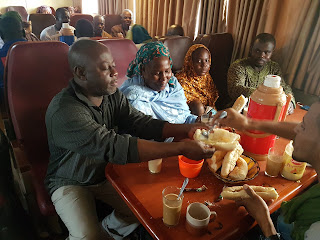Rosa
Bouglione obituary
Queen of the French circus whose troupe travelled with 30 horses, 12
elephants, ten lions, six tigers and a polar bear
October 26 2018, 12:01am, The Times
At the centre of Rosa Bouglione’s apartment in Paris lay one of her most
beloved possessions: a leopard-skin rug with head still attached. “That’s
Mickey,” she would say to visitors. “He died of old age. We had him a long
time.”
With her sparkling diamonds, a dash of red lipstick and her once-dark
hair swept up in an elegant bun, Bouglione was the matriarch of five
generations of a famous French circus family. She once hosted Maria Callas, the
soprano, on stage at the theatre the family ran — the enormous Cirque d’Hiver
(Winter Circus), which had several thousand seats. However, as Callas got too
close to Bouglione’s husband, Joseph, she was almost crushed by an elephant.
“The elephant practically knocked her over,” she recalled. “He was jealous.”
Bouglione was regularly sought out to talk about her adventures around
the world with her husband and their circus. They toured constantly. On one
trip to Brazil, during which they were accompanied by 30 horses, ten lions, six
tigers and a polar bear, there was a storm at sea and the captain almost
resorted to having the 12 elephants thrown overboard. “That was an adventure,”
she said.
On another occasion she had to smuggle a baby gorilla into her hotel
room in a hat box. “Gosh. Madame’s hats are pretty heavy,” she recalled the
doorman saying . The gorilla went on to make hammocks out of the hotel curtains
and developed a taste for wine, but was undetected by staff for a month.
Bouglione also had a bad-tempered parrot, Coco, who lived to the age of 45 and
spoke in a stream of foul language.
Often nicknamed “the undisputed queen of the circus”, Bouglione still
went to matinees even after she had retired from running performances. “The
shows got bigger and the children got bigger but I got smaller,” she said.
She was born Rosalie van Been in the back of a horse-drawn caravan in
Belgium in 1910. Her father, Jules, was an animal trainer with the family
outfit, Ménagerie van Been, and toured Europe with his wife, Gina (née
Penetenti), and their snakes, bears and lions. In her teens Rosa performed the
snake dance while her father controlled the lions. Aged 17, she fell in love
with Joseph Bouglione, who had grown up training big cats. They married in a
lion’s cage. The pastor chose to stay outside.
They spent their honeymoon working with the Wild West show, which had
been set up by the bison hunter turned showman Buffalo Bill Cody. In 1934 they
returned to France to run the Cirque d’Hiver, which Joseph bought with his
three brothers. They lived at the circus and had seven children: Odette,
Josette, Firmin, Emilien, Sandrine, Sampion and Joseph. They all joined the
troupe. And all except Sandrine survive her.
During the Second World War the cirque was allowed to continue under
Nazi occupation and the family hid their Romany origins behind their Italian
name. Yet over the years Bouglione recalled that they faced disapproval for
their gipsy roots. “People said we’d steal children.” she said, “but we never
did. We had our own children, we didn’t need to steal children.”
In the 1950s Bouglione began to organise acts rather than perform in
them. The circus hosted live television specials with singers such as Josephine
Baker and Callas alongside acrobats and animals. In 2011 Bouglione published
her memoirs, Un mariage dans la cage aux lions: la grande saga du cirque
Bouglione (A wedding in the lions’ cage: the great saga of the Bouglione
circus). In interviews she would call on her son Emilien, who was by then
in his eighties, as her “memory aid”.
She put her longevity down to hard work, to sleeping very little and to
deadly animals. “I’ve always, always been with lions, with panthers, with
wolves, with hyenas,” she said. “I was never scared.” Her funeral took place in
the Cirque d’Hiver. With 55 descendants, she often said that “as long as there
are children, there will be circus”.
Rosa Bouglione, circus matriarch, was born on December 21, 1910. She
died on August 26, 2018, aged 107


























